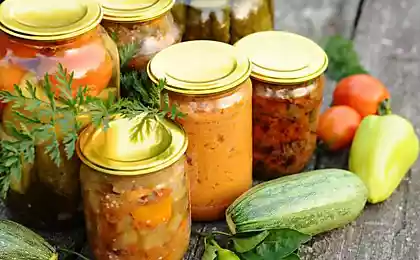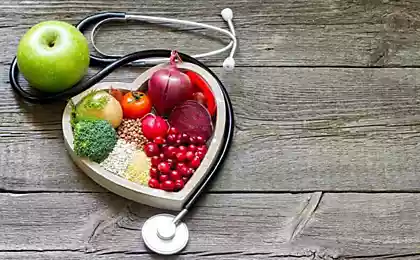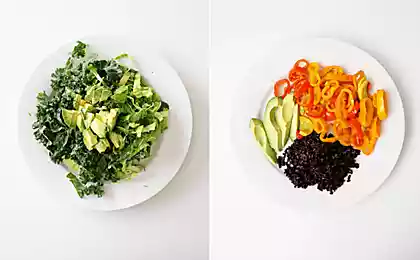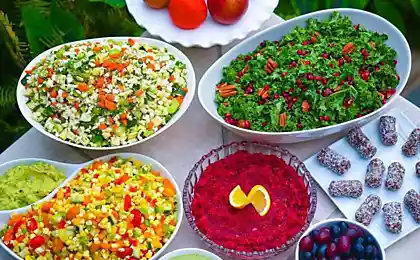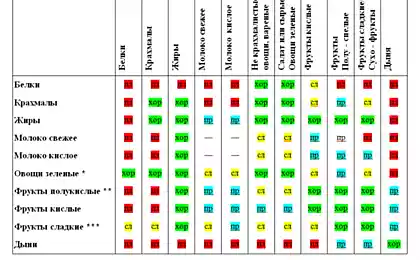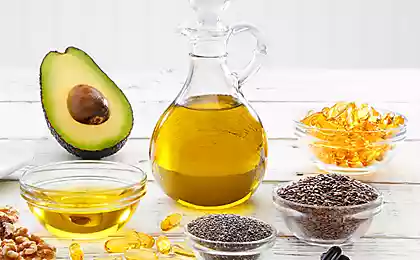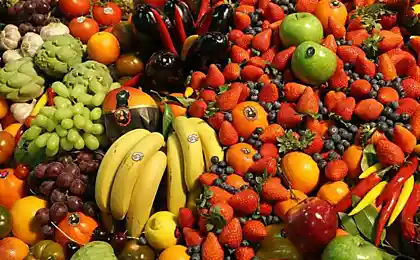498
6 misconceptions about healthy eating
Did you know that cane sugar is no better than refined sugar, and palm oil is unfairly equate to margarine? We decided to expose some common misconceptions about healthy eating.
Misconception 1. Cane sugar is much healthier than refined sugar
Cane (brown, black, yellow) sugar is the same sugar, just unrefined and unbleached. It still has a bit of molasses, that is cane molasses. The deeper "tan" sugar, the more molasses in it. Thanks to her sugar becomes caramel flavor and a sweet flavor and is enriched with calcium, magnesium, potassium and iron.
The problem is that these substances in cane sugar are so few that benefit from them the body almost none. Compare: refined sugar is 99.9% sucrose in cane 97% sucrose, 2% water and only 1% minerals. And calories even more: in a teaspoon of cane — 17 kcal, refined sugar — 16 calories.
Another ambush — real cane sugar in our stores almost never occurs. Manufacturers, as shown by examination, simply add molasses to the sugar is already cleaned. Laws prohibiting it do not. For real cane sugar will have to go to Cuba, Brazil, Costa Rica or Mauritius.
Misconception 2. Palm oil — the evil Reputation of this bright orange tropical oil stained saturated fats — it is about 50% (in olive — 13%, sunflower 10%). Meanwhile, palm saturated fat, unlike margarine and butter, does not contain harmful TRANS fats.
In addition, pure palm oil, extra virgin — excellent source of unsaturated fatty acids (omega-9 and omega-6). Not an example linseed palm oil for many months is still fresh and not oxidized. Finally, it has ten times more beta-carotene (provitamin A) than carrots, and are very rich in vitamin E.
Misconception 3. The more water you drink the better
Actually you don't have to drink eight glasses of water a day to avoid constipation and dehydration. Professor of physiology Susan Shirreffs from Loughborough University insists that each of us has a rate of loss of fluid and we have to fill it at your own pace. Two simple guideline: thirst and urine color (the whiter, the better).
In addition, to replenish fluids in the body can not only by water, are also credited vegetables and fruits with high water content (watermelon, peaches, apples, oranges, cucumbers, tomatoes, zucchini, eggplant).
Misconception 4. Raw foods — perfect food
On digestion of cooked and fried food, our body spends scarce enzymes, raw foodists believe. Supposedly, the supply is not unlimited, so as long as possible to stay young and healthy, we should eat only fresh vegetables and fruits. These foods are easily digested by their own enzymes.
In reality, there is no deficiency of enzymes: these substances are so important that the body itself is able to produce them in the right quantity.
"Digest themselves raw vegetables and fruits can not, — says Andrei Gruzdkov, doctor of biological Sciences, head of laboratory of physiology of nutrition, Institute of physiology. I. P. Pavlov of the Russian Academy of Sciences. — Plant foods are primarily dietary fiber and starch, but not digestive enzymes, which split the starch".
However raw vegetables and fruit necessary for us because they contain vitamins, which activate enzymes in our body. But if some vitamins during thermal treatment disintegrate, while others, on the contrary, even better assimilated. For example, carotene is better absorbed from carrots and tomatoes after heat treatment.
Misconception 5. Olive oil can not be fried
Of course, the Spaniards and the Greeks are still fried, but it is believed that even when gently heated in olive oil formed TRANS fats and carcinogens.
"Actually this is not so, explains Professor Gregorio Varela from the Department of nutrition, Complutense University of Madrid, author of the book about cooking with olive oil. — Extra virgin olive oil retains most of the nutrients even after the heat treatment at high temperature. It is important not to heat it to the point where it begins to smoke (if 185-204 degrees)".
This is not necessary: for easy frying enough 130-145 degrees, baking in the oven — 180-200.
Misconception 6. If you want specific food, it means that the body lacks something
It's just a psychological trick to justify an after-hours appetite. "There is no scientific evidence that craving for a certain type of food is associated with a deficiency of some substance in the body," emphasizes the Professor of nutrition Peter Rogers of Bristol University.
If our body really could force us to choose products depending on what vitamins and minerals we currently do not have enough, we would gladly have exchanged chocolates on fresh spinach and berries. But, as shown by a study published in the scientific journal Appetite, in moments of emotional hunger, most of us are drawn to chocolate, cakes, fatty meats, spicy pickles and chips.
According to the authors of the study, the fact that this food is:
a) brain delivers the most intense pleasure (see "How to stop eating and start living"),
b) seems to us to be desirable, because we do all the time prohibited. "We know that, if you deny yourself to think about something, the ends that you only think about it, says James erskin, a psychologist from Hertfordshire University. — Women that we asked to refrain from thoughts, and even conversations about chocolate during our study, but in the end could think about was him".
But if you do the opposite — to allow myself to think about the Goodies in plenty, appetite decreases.
It is proved that the imagination helps to eat less.

Source
Source: /users/413
The moonlight will illuminate the streets instead of lanterns
How to verify the truthfulness of the composition of cosmetics

